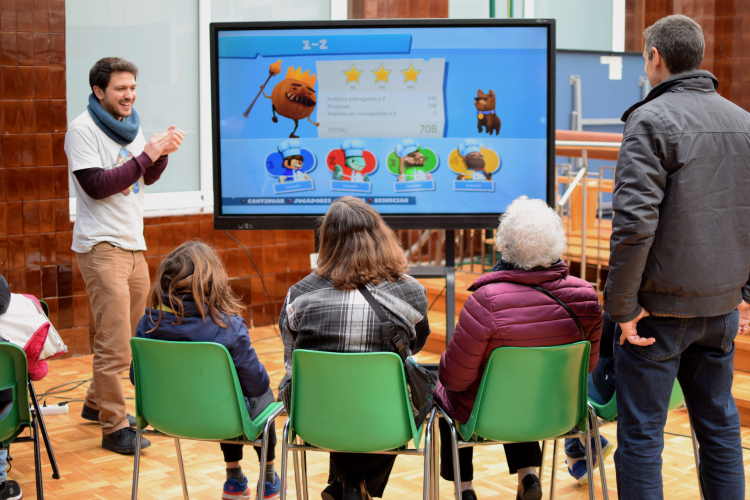A few years ago, Aimar Intxaurrondo and Natxo Armenter met while developing a professional project on new technologies and education. There, a seed was born, which was watered and enriched by the hand of Gerard Cruset and Pau Soler. In this way, the 'Good Game Generation' project was born. Currently, the team has people who are experts in digital marketing and communication, creators of audiovisual content, creative minds, educators and psychologists with a motivational view and work on values and skills.
1. So what is 'Good Game Generation'?
'Good Game Generation' emerged two years ago with the desire to offer activities for children, teenagers and young people focused on the world of video games and how to help improve the relationship of these groups with new technologies. From our knowledge and from our experience, we identify video games as an exceptional tool to work on values, skills and competences in a safe environment. Although video games are very present in the field of youth leisure, we find that there is a lack of information about their possibilities and that this misinformation causes the social perception of video games to be not entirely positive. From the first moment, we saw that it was necessary to spread and raise awareness about the subject with the parties involved and we started to carry out talks and colloquiums for children, teenagers, young people, families and educators. Today, 'Good Game Generation' is an educational initiative that seeks to promote the 'Good Gaming' philosophy, a conscious and healthy use of new technologies and, specifically, video games.
2. What is the aim of the project?
Like all technology, video games are not good or bad, it depends on how we use them. From 'Good Game Generation', we want to reformulate citizens' relationship with video games. Unfortunately, nowadays, many children and young people use them without any kind of control and filter, and without a critical and ethical view. We see the potential of video games to work on healthier relationships with the digital environment. We believe that it is necessary to use video games in non-conventional ways and encourage their educational uses.
3. What is the 'Good Gaming' philosophy?
The 'Good Gaming' philosophy talks about playing in a more conscious and responsible way, establishing values and learnings that we can transfer to our lives and our daily lives. The 'Good Gaming' philosophy is also to create a safe and healthy space for the new generations, and for the not-so-new generations, that helps to have better relationships, both in digital environments and in face-to-face environments, to learn and put in practice new digital skills and, in addition, to develop essential skills for the future such as teamwork.
4. How do you work with children, teenagers and young people?
Through video games, we work on the personal development of children, teenagers and young people. From seeing how they play or what role they adopt during the game, we can detect characteristics and distinctive traits of that person, if they like to compete, if they like to explore or if they like to spend time with friends, and guide them better to them and their families. We also work on soft skills, that is, skills that a person presents naturally, such as communication, decision-making or conflict resolution.
5. And with families and educators?
When we address families and educators, we focus on the management of video games, which agreements to put on the table, which guidelines to establish or which limits to mark. Also, we want them to see and know the motivations behind or what can be learned from video games. We try to make it a very practical and very participatory space, where they can share their experiences and advise each other. The truth is that they always start the session with a lot of worries and little by little they disappear.
6. Finally, have you worked with other collectives?
Our research and professional experience on video games has made us understand that they can be a great tool for diverse groups, such as, for example, professionals through team building activities or older people for whom they can be resources for enhance social relationships, have fun and stimulate cognitive abilities. In short, video games are a very versatile resource and can be adapted to almost any group that wants to learn in a fun and motivating environment. So, we invite you to follow our networks and listen to our podcast 'Jugando para el futuro' on the main digital platforms, where we talk to experts related to the gaming sector and learning to rediscover video games.



